In Donald Trump, Chinese See the Ultimate `Fuerdai’: Adam Minter
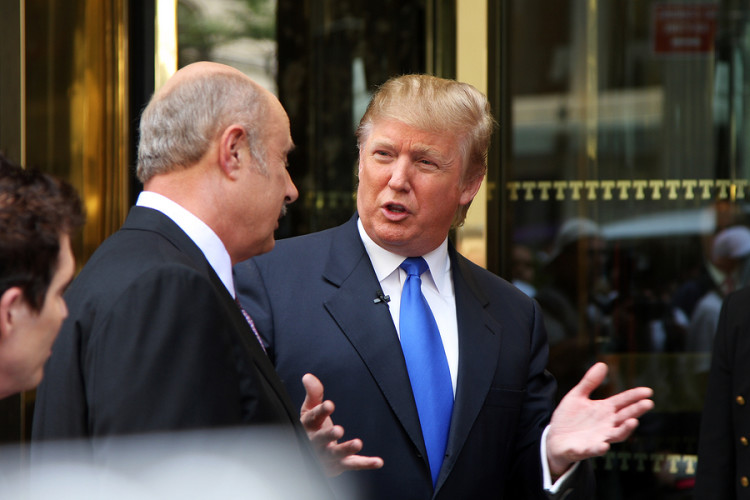
@2016 Bloomberg View
O3N1486KLVR6
(Bloomberg View) — Around the time that polls were closing on Super Tuesday in the U.S., Communist Party news outlets in China began syndicating a 15-image slideshow: “The Erratic Trump is Actually a Winner in Life.”
It opens with an image of Donald Trump’s extended family, and a list of reasons why Trump “couldn’t be more inspirational,” including his bestselling books, real-estate empire, and beautiful wives and daughters. But it’s the first item on the list that packs punch outside of China’s leadership class: “fuerdai.”
Roughly translated, the term means “rich second generation,” and refers to the luxury-loving children of the entrepreneurs and politicians who grew wealthy as China’s economy opened up. Spoiled, entitled and ostentatious, the fuerdai “are to China what Paris Hilton was to the U.S. a decade ago, only less tasteful,” as Bloomberg BusinessWeek put it last year.
Their list of offenses is endless: burning money (and posting pics to social media), buying opulent watches for their dogs (and posting pics to social media), holding orgies. But above all, fuerdai seem to exemplify the social and economic canyon that’s opened between China’s privileged classes and everyone else. Unlike most Chinese, fuerdai can misbehave and then — thanks to family wealth and connections — quickly transition to positions of authority when they decide to grow up.
Trump, with his inherited wealth and gaudy taste, seems to offer a perfect American analog. Although “The Apprentice” has long been popular in China, Trump is rarely viewed in positive terms, either as a leader or even a businessman. In a country where real-estate fortunes are often built on corruption, and where property tycoons rank among the most hated public figures, nobody is likely to view Trump as an entrepreneurial Jack Ma type. Unflattering references to Trump and his family have been circulating online for years.
But the reaction got more serious as Trump’s presidential campaign geared up in 2015. In August, Caijing, one of China’s most respected business magazines, published a story titled, “Republican `Dark Horse’ Donald Trump: A Celebrity Fuerdai Will Not Make a Good President.” In case anyone was wondering why that description was apt, the author spelled it out: “He was born into a real estate family, went to the Wharton School at the University of Pennsylvania, and took his father’s company into high-end real estate — truly, he is a fuerdai.”
The association only became stronger after Trump’s infamous “Today” show appearance in which he revealed that he got his start in business via a “small” $1 million loan from his father. Some commentators compared him to Wang Sicong, the son of China’s richest man, best known for buying Apple Watches for his dog, offering crudely Trump-like appreciations of women and starting an online entertainment business (with dad’s money).
But fuerdai isn’t even the worst characterization of Trump in the Chinese media. By turns, he’s been called a clown, a reminder of Hitler and anti-Chinese due to his threats to start a trade war. In some ways, he often seems like a more outgoing and humorous version of the kinds of connected individuals who typically succeed in the Chinese autocracy.
It doesn’t help that U.S. President Barack Obama has long been a popular and even inspirational figure in China (his policies, much less so) precisely because he rose to the pinnacle of American power despite a lack of money and connections. That kind of rise is impossible in China, where ethnic minorities are largely shut out of government and the top job is held by the son of one of the country’s modern founders.
If there’s any consolation for Trump, it’s in knowing that China’s leaders appeared uncomfortable with Obama’s populist appeal during his earliest visits to the country. Trump, by virtue of his background, won’t carry that kind of baggage. Rather, he’s just the kind of guy that China’s leaders are accustomed to doing business with.
This column does not necessarily reflect the opinion of the editorial board or Bloomberg LP and its owners.
To contact the author of this story: Adam Minter at aminter@bloomberg.net To contact the editor responsible for this story: Timothy Lavin at tlavin1@bloomberg.net
For more columns from Bloomberg View, visit http://www.bloomberg.com/view


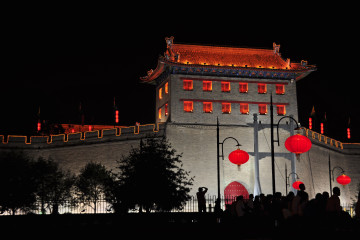
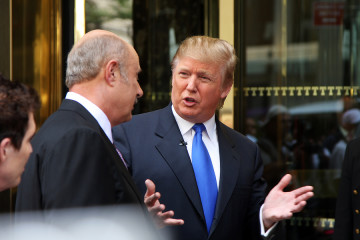
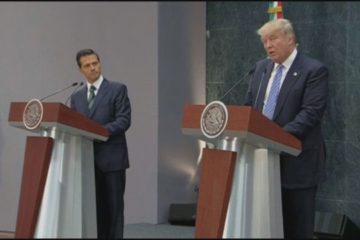
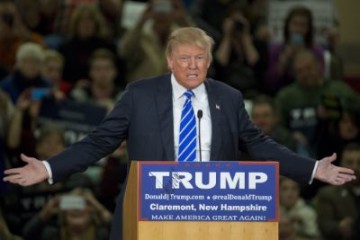

No Comment